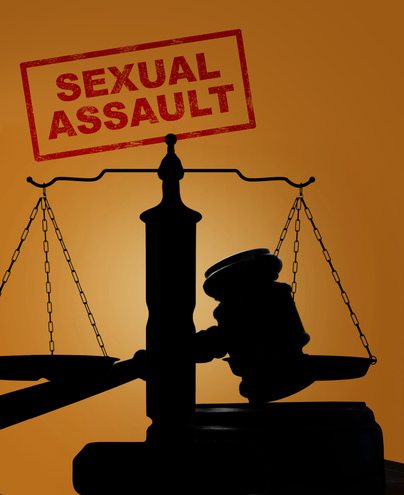CHICAGO, IL – Sexual abuse is a traumatic experience that can leave lasting emotional, psychological and physical scars on its victims. Unfortunately, in some cases, these heinous acts occur within institutions that are meant to protect and nurture individuals — such as schools, churches and other organizations. Institutional failures can exacerbate the trauma of sexual abuse by enabling a culture of silence, inaction or even active cover-ups.
In this blog, we will explore the role institutions play in sexual abuse cases, how their failures contribute to ongoing harm and what legal options are available for victims seeking justice.
Understanding Institutional Failures in Sexual Abuse Cases
When sexual abuse occurs in schools, churches or other organizations, the failure of these institutions to act appropriately can contribute to the continued suffering of victims. Institutional failures may include:
- Failure to Prevent Abuse
Institutions often have a duty to implement safeguards, such as background checks, training and oversight, to prevent abuse from occurring. When these measures are not put in place or are ignored, the risk of abuse increases. - Failure to Respond to Allegations
Victims of sexual abuse often face resistance or disbelieving responses when they come forward. Many institutions — particularly schools and churches — may prioritize protecting their reputation over taking action. This may involve ignoring allegations, downplaying the seriousness of the situation or actively silencing the victims. - Failure to Protect Vulnerable Individuals
Schools, churches, and other organizations are meant to be safe spaces, especially for children and vulnerable adults. When these institutions fail to maintain a safe environment, they become complicit in the harm inflicted on victims. - Cover-Ups and Retaliation
In some cases, organizations may go so far as to cover up the abuse by intimidating victims, discouraging them from speaking out or even transferring perpetrators to different locations rather than removing them from the institution altogether.
The Emotional and Psychological Toll of Abuse
Sexual abuse, particularly when it occurs in trusted institutions, can be especially devastating. Victims may experience:
- Emotional Trauma: Shame, guilt, anger and confusion are common emotional responses. Victims may feel isolated and powerless in the face of institutional indifference.
- Psychological Impact: Many victims suffer from long-term psychological effects, including depression, anxiety, PTSD and issues with trust and relationships.
- Social and Behavioral Consequences: The shame and stigma associated with sexual abuse can lead victims to withdraw from family, friends and social activities. In some cases, they may struggle with academic, career or personal development.
The emotional scars of sexual abuse can persist for years, and the failure of institutions to address these issues properly can make a recovery even more difficult.
Legal Options for Victims of Sexual Abuse in Institutions
Victims of sexual abuse within schools, churches or other organizations may have legal avenues to seek justice and compensation for the harm they have suffered. These may include:
- Filing a Lawsuit Against the Institution
In some cases, victims can pursue a civil lawsuit against the institution for its role in enabling or failing to prevent abuse. This could include claims for:- Negligence: If the institution fails to implement adequate safeguards or respond appropriately to allegations of abuse, it may be found negligent.
- Intentional Infliction of Emotional Distress: If the institution’s actions or inaction were particularly harmful, victims may be able to pursue this claim for the emotional toll they endured.
- Vicarious Liability: Institutions may be held responsible for the actions of their employees, including perpetrators of abuse.
- Pursuing Criminal Charges Against the Perpetrator
In addition to civil claims, victims can pursue criminal charges against the individual responsible for the abuse. Criminal charges may include sexual assault, harassment or abuse. However, criminal cases are often difficult to prove, and a civil lawsuit may be necessary to secure financial compensation. - Accessing Victim Support Services
There are also various support services available for victims of sexual abuse, such as counseling, therapy and advocacy groups. Legal teams can connect victims with these resources to aid in their healing process. - Statute of Limitations
In Illinois, victims of sexual abuse have a specific time frame in which they can file a lawsuit. However, Illinois recently extended the statute of limitations for civil claims in sexual abuse cases, allowing victims more time to seek justice. It’s important for victims to consult an experienced attorney to understand their rights and deadlines.
How the Dinizulu Law Group Can Help
If you or a loved one has experienced sexual abuse in a school, church, or other organization, the attorneys at the Dinizulu Law Group are here to help. We understand the complexities of institutional abuse cases and are committed to seeking justice for victims. Our team has experience handling sensitive cases and providing the legal support needed to hold negligent institutions accountable. We will help you navigate the legal process, gather evidence, and pursue the compensation and justice you deserve.
Contact us today at (312) 384-1920 for a free consultation or visit our website to learn more about your legal options.



